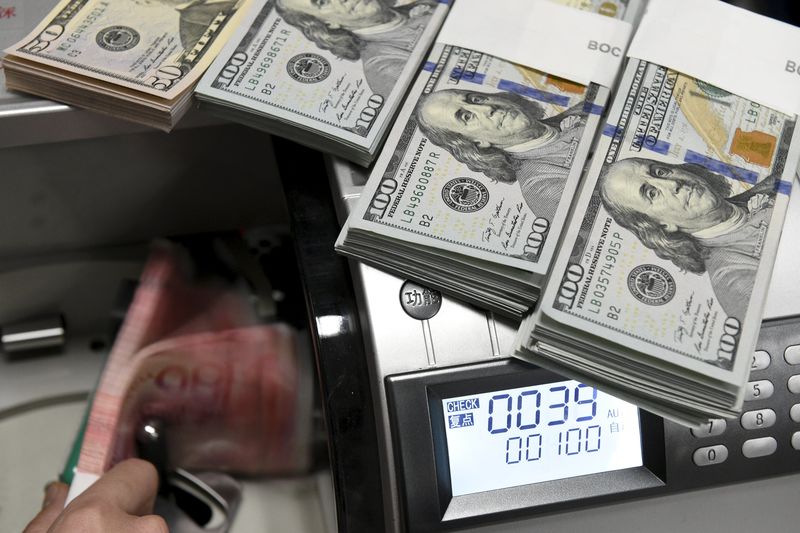Investing.com – The dollar turned negative against a basket of major currencies as rising political turmoil in the Middle East fuelled safe haven demand while news that New York Federal Reserve President William Dudley was retiring early weighed on sentiment.
The U.S. dollar index, which measures the greenback’s strength against a trade-weighted basket of six major currencies, fell by 0.18% to 94.66.
The dollar gave up its gains against safe-haven currencies such as the yen and Swiss franc amid political uncertainty in the Middle East after Saudi Crown Prince Mohammed bin Salman led an anti-corruption drive which resulted in series of arrests of prominent Saudi Arabians.
“We have political uncertainty, risk of political instability in this major oil producing country [Saudi Arabia] and also unforeseen implications for the entire region,” Commerzbank (DE:CBKG) analyst Carsten Fritsch said.
USD/JPY fell 0.24% to Y113.81 while USD/CHF lost 0.25% to 0.9981.
Also adding to dollar weakness was uncertainty over the leadership of the Federal Reserve after the Federal Reserve Bank of New York confirmed that William Dudley was preparing to retire earlier than planned in mid-2018 rather than when his term ends in Jan. 19.
The fall in the greenback, however, may be limited as data showed traders trimmed their bearish bets on the dollar last week.
The value of the dollar's net short position, derived from net positions of International Monetary Market speculators in the yen, euro, British pound, Swiss franc and Canadian and Australian dollars, was $3.37 billion, in the week to Oct. 31, compared to a net short position of $8.02 billion in the previous week.
Sterling was one the main beneficiaries of a slump in the dollar, rising 0.57% to $1.1315.
EUR/USD rose 0.04% to $1.160 while EUR/GBP fell 0.54% to £0.8829.
USD/CAD fell 0.30% to C$1.2725 after data showed the purchasing activity in Canada rose in October to its strongest in 21 months.
